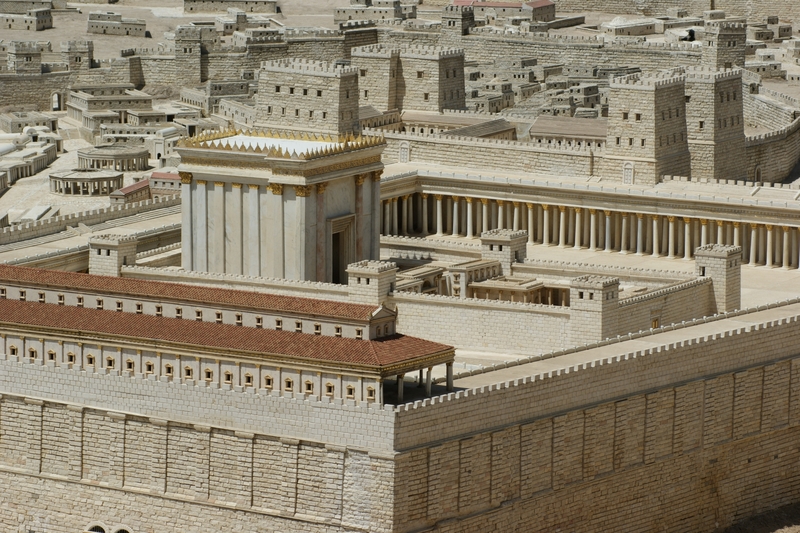
This week we begin to read from Sefer Vayikra; the book of the Torah which encompasses the laws of the kohanim. A large part of the book deals with the laws of the korbanot- sacrifices. In fact, the entire Parshat Vayikra focuses on korbanot. The laws of korbanot are amongst the most complex of our Torah and the hardest to relate to. It has been two thousand years since the destruction of the Holy Temple in which we brought korbanot.
The entire procedure seems to be a primitive ritual and an archaic practice. Yet, there is an even more troubling question here. Does Hashem really want our korbanot? Does he need our animals, our birds, and our flour? Do they really please Hashem? It’s even more puzzling when we look at the nebi’im. In one pasuk in particular it says that Hashem doesn’t want our sacrifices! “Hesed hafasti velo zabah- For I desire kindness, not sacrifice (Hosea 6)”. So which is it? What does Hashem really want from us?
To answer our questions, we must take a look at the various types of korbanot and determine which is most important to Hashem. Korbanot can either come from animals, birds or flour. If we had to guess which was the most important and valued korban, we’d say that it was the sacrifices from animals. Surprisingly, Hazal tell us that the korban of flour, brought by a poor man, who cannot afford the other types, is the most important in the eyes of God.
The Zohar provides an illuminating insight as to why. The poor man is bringing much more than some simple flour. The poor man is offering his very heart and soul. He barely has what to eat, and he is bringing the little that he has to Hashem. Whatever the poor person does bring is given with the best of intentions and wholeheartedly. The introductory words to the section illustrate this point, “VeNefesh ki takreeb- When a soul (person) presents an offering of meal to the Lord (Vayikra 2)”. Hashem views it as if it he brought his very soul. The Zohar states that this gift is more precious than anything else imaginable!
The Midrash relates a story about a very poor lady. She wanted to bring a korban, but could only afford a little flour. She brought a kometz (fistful) of flour – the exact amount brought on the mizbeah to the Bet Hamikdash (usually people would bring more and the extra flour would be given to the kohanim). As she entered the temple, a kohen noticed the meager amount of flour she brought and began to mock her: ‘Is that all you brought?? Nothing for us?’ That night, the kohen was chastised in a dream. He he was told not to dare make fun of her, as Hashem considers it as if she brought her soul. The very little that she brought was a reflection of her soul.
Hashem isn’t interested in our money, in our animals, in our birds, or our flour. He does not care about the inherent value. He is concerned with how we value those things; he is interested in our intentions and efforts. It is not what you bring, it is how you bring it.
The primary purpose of a korban is to come close to Hashem. Hence its name is korban- form the Hebrew kareb to come close. If one wishes to come closer to God, they must give of themselves. The message of korbanot is just as relevant today as it was two thousand years ago. Hashem wasn’t us to give!
Hashem wants us to give of ourselves.
Hashem wants us to give to him- to invest in his misvot, to invest in his service, to pray with focus and concentration, to invest time into Torah study
Hashem wants us to give to our families- to provide for them, to make time to spend with them, to transmit our wonderful heritage and traditions to them
Hashem wants us to give to our fellow man- to help them, to treat them kindly, to care for them like we care for ourselves
Hashem does want Hesed, but hesed by definition is the same as a genuine Korban! Hence, Hashem wants a korban which is reflective of giving of ourselves, and that is hesed.
If we bring these korbanot in our daily lives, we’ll merit to reach a time when we will bring korbanot in the Bet Hamikdash speedily in our days. Amen!
Rabbi Yaakob Savdie is an educator & Rabbi in the Sephardic Community of Brooklyn. He serves as a Rabbi at Congregation Ahaba Ve Ahva, where he gives shiurim, delivers sermons, and helps to guide the congregants. He also oversees the Post High School Program at Yeshibat Shaare Shaul (the Sephardic Rabbinical College) where he educates the young adults of the community, and teaches Gemara & Halacha. He received his semicha from Hacham Obadia Yosef ZS"L.








